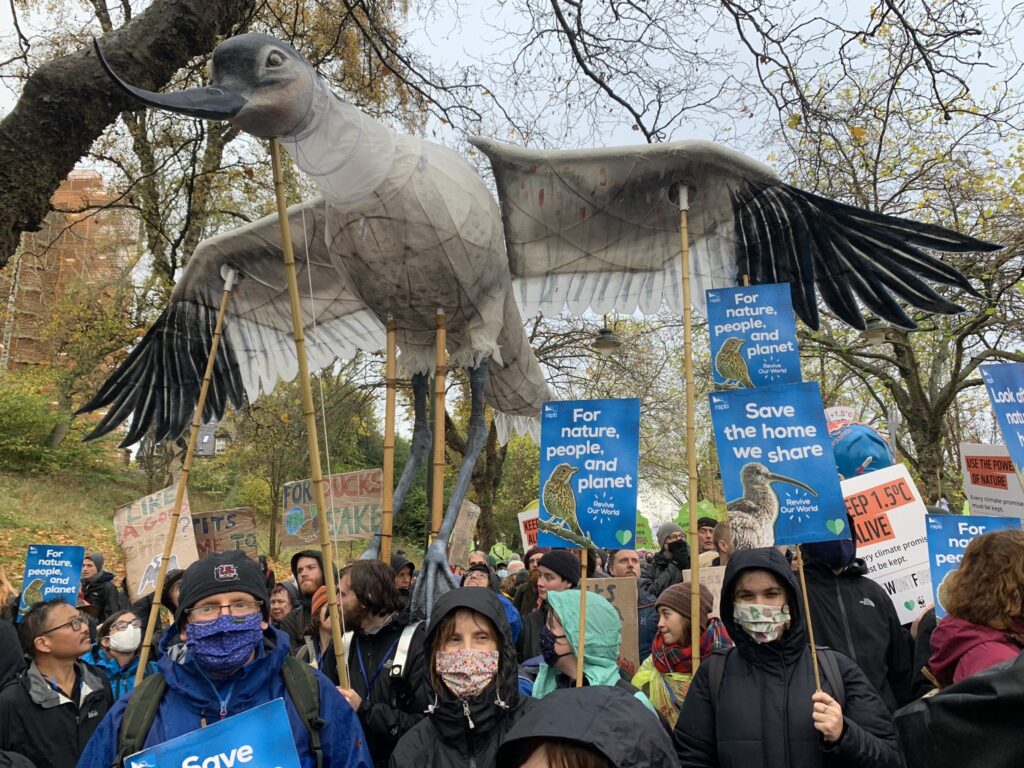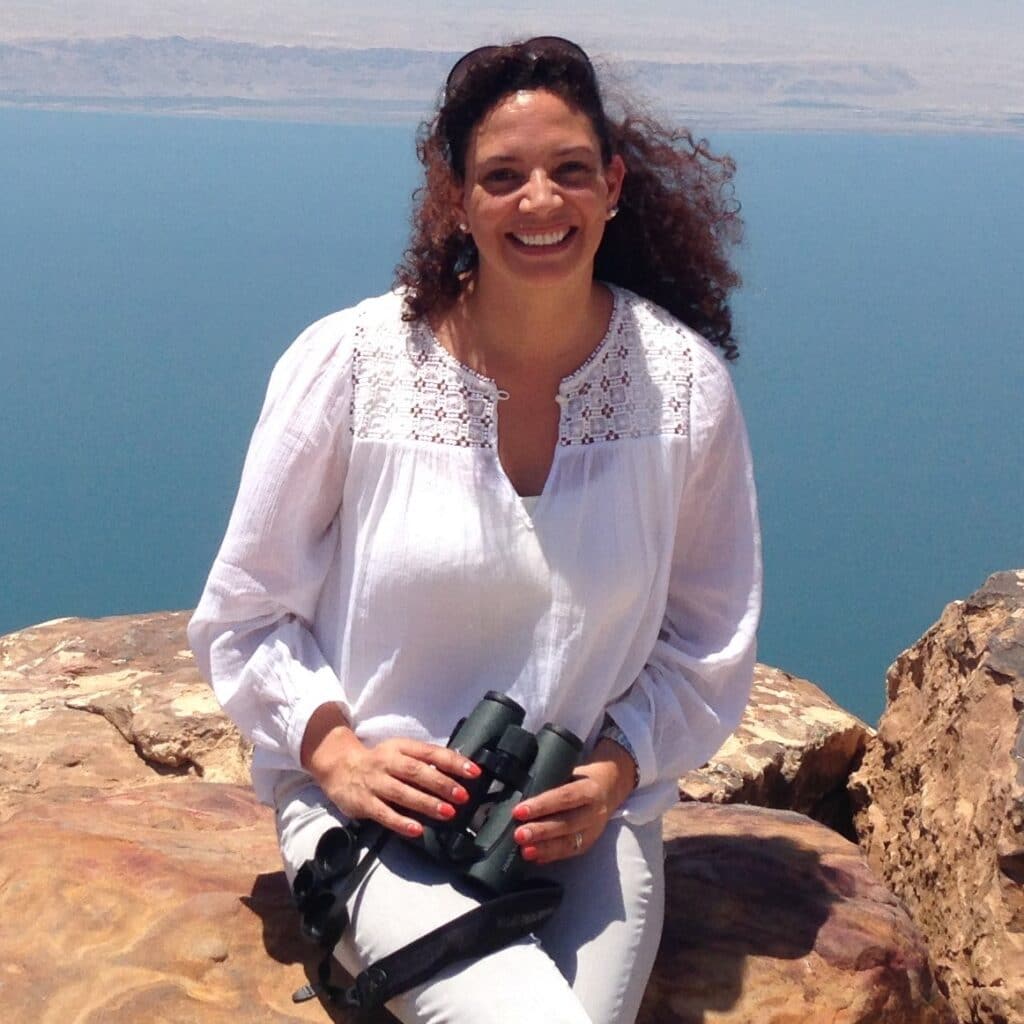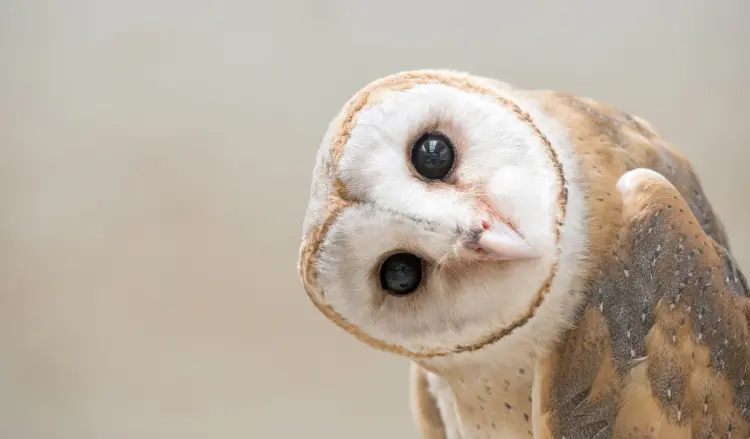A letter from Glasgow – Some thoughts from Patricia Zurita

As this first week of the Glasgow Climate COP winds down, I wanted to share some of my initial thoughts.
By Patricia Zurita, Chief Executive Officer of BirdLife International
First it is exhilarating to come together and see so many partners-in-arms in person, finally, after COVID’s isolating effects, from around the world – some familiar and old friends, and many exciting new friends as well. Diversity is essential for resolving the planet’s crises, whether biodiversity or climate.
Because my BirdLife family is 117 strong around the globe, we know, I know, first hand the already devastating impacts for, just as an example, island nations in the Caribbean like the Bahamas or Fiji in the Pacific, as well as African, Asian and American nations like Kenya, Madagascar, Bangladesh, Nepal, El Salvador or my own country, Ecuador. Our broad wingspan knits us together in a deep awareness of the stakes at this COP.
We all know the fine line we must walk between the optimism needed to persist in designing and implementing solutions and the skepticism required when contemplating the many unmet commitments made in the past – and even the announcements here in Glasgow.
I remember as a young woman, barely out of high school, my excitement when the 1992 Rio Earth Summit was being held on my own Latin American continent. And yet in the 30 years since, by nearly every metric the destruction of nature and climate have accelerated intensively. We have emitted as much C02 since 1990 as in all of history before that time. The biomass of wild mammals has fallen by 82%, natural ecosystems have lost about half their area and a million species are at risk of extinction.
One powerful voice for truth, among others, I have heard here at the COP was Barbadian Prime Minister Mia Mottley’s clarion call during the Opening Ceremonies. As a woman, as a leader of an island nation on the front lines of climate change impact, she knows whereof she speaks. I salute and echo her words.

We have emitted as much C02 since 1990 as in all of history before that time. The biomass of wild mammals has fallen by 82%, natural ecosystems have lost about half their area and a million species are at risk of extinction.
Every credible scientific authority is ringing alarm bells as frantically as they can to say this truly IS the planet’s tipping point. Now. Not in a decade, but today, even yesterday.
“We can’t allow the seeds of greed and selfishness to sow our self-destruction.”Barbadian Prime Minister Mia Mottley
And let me reiterate that we know putting nature at the heart of our climate work has to go hand in hand with effective, urgent and radical emissions reductions. We must do both – and as quickly as possible. We have to stop fossil fuel production and combustion and manage our lands better and, alongside that, we need decisive and effective action and substantial finance to protect and restore nature, to help us adapt to the impacts of the changing climate, and to absorb CO2 by conserving and restoring carbon-rich ecosystems. Climate solutions must not pose risks to nature, or harm indigenous or local communities’ rights. When nature is at the heart of climate and development, we will be making real the new human right to a healthy environment. There is no viable route to limiting global warming to 1.5°C without nature. As Carlos Manuel Rodrigues (Global Environment Facility CEO) said at the closing ceremony, it’s great to see nature much more present at the Climate COP. I was very happy to witness the first ever CBD (Convention on Biological Diversity) hosted event at a UNFCCC (United Nations Framework Convention on Climate Change) COP.
We are actively engaging inside the COP with colleagues, government and corporate leaders, experts and country delegations, making the case based on science of the role of nature. In saving the planet, one must engage on all fronts.
And so I cannot lie and tell you I have every confidence that this time, at this COP, we shall prevail and make the difference. But with every sinew in our bodies, the BirdLife family and I are fighting on all fronts, from finance, to forests, the oceans, and the plains, from Scotland to Australia, from Ecuador to the Philippines, – everywhere in seas and forests, grasslands and wetlands we are working tirelessly to save the planet. However, as the UK’s Lord Goldsmith said ‘the only bit that has been lacking is political will’. I remain skeptical but truly hope this COP finally the delivers political commitment at the level the planet so urgently needs.
Will the planet’s leaders, politicians, bankers and titans of industry meeting in Glasgow, will they match in immediate actions our own determination – will their commitments become credible, concrete, and transparent? We rapidly need to move quickly from rhetoric to reality. We applaud the Leaders’ pledge on halting and reversing forest loss, now with 134 countries as signatories, and especially the separate $12 billion forest declaration, but desperately request that the money gets into the right hands as soon as possible. As Prime Minister Mottley from Barbados said, ‘failure to provide the finance promised is a failure measured in lives and livelihoods’. This cannot yet again be a COP full of promises and great statements not followed up with real, immediate and determined action that puts nature at the heart of the climate agenda.
We cannot, we must not, fail ourselves and our children and grandchildren – nor nature itself. BirdLife has 100 years of working for birds, nature, and people and I intend that we shall do so even more successfully for another century. We are determined to protect what is left and bring as much back from the brink as possible as we fight to reduce our footprint while adapting to the inevitable climate impacts human activity have already locked in to the systems of our unique, precious Planet.
Stay up to date
Sign up to receive the latest bird conservation news. You’ll also receive updates about our projects, science and other ways to get involved including fundraising.
Thank you for your support, we are committed to protecting your personal information and privacy. For more information on how we use your data, please see our Privacy Policy. You can unsubscribe from emails at any time by using the link in the footer of any email from us.

